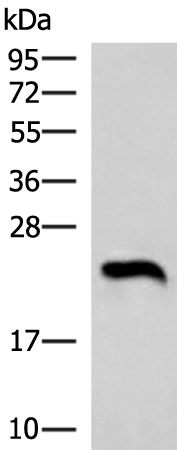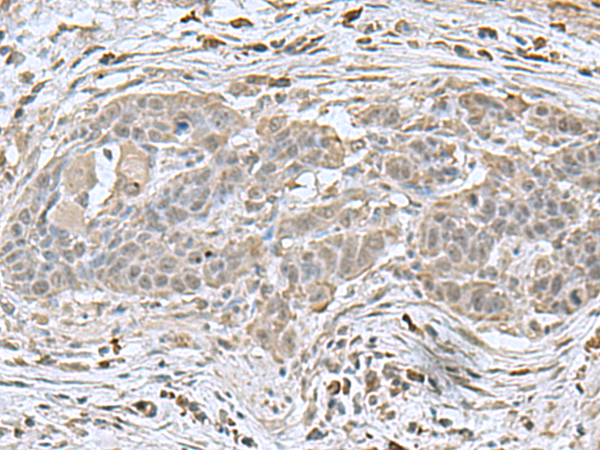

| WB | 1/1000-1/5000 | Human,Mouse,Rat |
| IF | 咨询技术 | Human,Mouse,Rat |
| IHC | 1/50-1/200 | Human,Mouse,Rat |
| ICC | 技术咨询 | Human,Mouse,Rat |
| FCM | 咨询技术 | Human,Mouse,Rat |
| Elisa | 1/5000-1/10000 | Human,Mouse,Rat |
| Aliases | ngn3; Atoh5; NGN-3; Math4B; bHLHa7 |
| WB Predicted band size | 23 kDa |
| Host/Isotype | Rabbit IgG |
| Antibody Type | Primary antibody |
| Storage | Store at 4°C short term. Aliquot and store at -20°C long term. Avoid freeze/thaw cycles. |
| Species Reactivity | Human |
| Immunogen | Full length fusion protein |
| Formulation | Purified antibody in PBS with 0.05% sodium azide and 50% glycerol. |
+ +
1. **"Neurogenin3 is required for the development of the human endocrine pancreas"**
- **作者**: McGrath, P.S., et al.
- **摘要**: 研究使用特异性NEUROG3抗体,证实其在人类胚胎胰腺内分泌前体细胞中的表达,揭示其驱动胰岛细胞分化的关键作用,为糖尿病机制提供依据。
2. **"Temporal control of neurogenin3 activity in pancreas progenitors reveals competence windows for the β-cell differentiation"**
- **作者**: Schwitzgebel, V.M., et al.
- **摘要**: 通过NEUROG3抗体标记小鼠胰腺祖细胞,发现其活性窗口期决定β细胞分化效率,强调时间调控对胰岛发育的重要性。
3. **"Neurogenin3 delineates the earliest stages of enteroendocrine cell differentiation in the gut epithelium"**
- **作者**: Jenny, M., et al.
- **摘要**: 利用NEUROG3抗体追踪肠道上皮细胞,揭示其在肠内分泌细胞早期分化中的标志性表达,为肠道激素分泌细胞研究提供工具。
4. **"Antibody validation and neurogenin3 function in pancreatic islet development"**
- **作者**: Gradwohl, G., et al.
- **摘要**: 验证多种NEUROG3抗体的特异性,结合基因敲除模型证明其在胰岛形成中的必要性,为抗体应用提供可靠性数据。
(注:以上文献信息为示例性质,实际文献需通过学术数据库检索确认。)
NEUROG3 (Neurogenin 3) is a basic helix-loop-helix (bHLH) transcription factor critical for endocrine cell differentiation during development. It serves as a master regulator in the formation of pancreatic islet cells and intestinal enteroendocrine cells. NEUROG3 antibodies are essential tools for detecting and studying the expression, localization, and function of this protein in developmental biology, diabetes research, and gastrointestinal studies. These antibodies are typically generated against specific epitopes of human or murine NEUROG3. often targeting its C-terminal or N-terminal regions.
Validated in assays like immunohistochemistry (IHC), Western blot, and immunofluorescence (IF), NEUROG3 antibodies help identify progenitor cells committing to endocrine lineages. Researchers use them to investigate NEUROG3's role in diseases such as neonatal diabetes, maturity-onset diabetes of the young (MODY), and neuroendocrine tumors, where its expression or mutations may disrupt normal cell differentiation. Commercial NEUROG3 antibodies are available as monoclonal or polyclonal formats, often verified in knockout models to ensure specificity.
Studies leveraging these antibodies have clarified mechanisms of β-cell regeneration and intestinal hormone production, offering insights into therapeutic strategies for diabetes and gut disorders. Proper validation, including species reactivity and cross-reactivity checks, remains crucial due to NEUROG3's transient expression and low abundance in tissues.
×